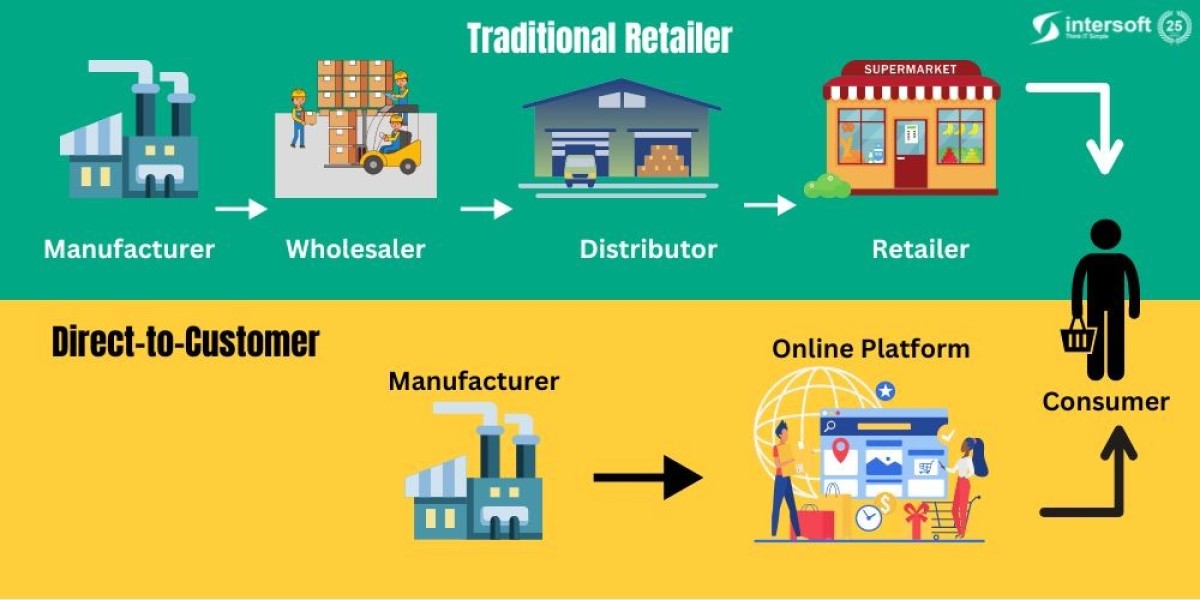Building a D2C Platform: A Complete Guide to Direct-to-Consumer Success
In recent years, the Direct-to-Consumer (D2C) model has transformed from a niche strategy into a dominant force in eCommerce. Brands like Warby Parker, Glossier, and Allbirds have demonstrated the power of owning customer relationships end-to-end, bypassing traditional retail channels. At the heart of this transformation? Sophisticated, scalable D2C platforms.
If you're planning to build a d2Ccplatforms development, this guide will walk you through the essential steps—blending technology, strategy, and customer experience.
What is a D2C Platform?
A D2C (Direct-to-Consumer) platform is an eCommerce solution that allows brands to sell directly to their customers via their own website, mobile app, or marketplace—without intermediaries like wholesalers or third-party retailers.
Unlike traditional eCommerce, D2C platforms focus heavily on customer experience, personalization, data-driven marketing, and brand storytelling.
Why D2C? The Key Advantages
Full Control Over Brand & Pricing
Direct Access to Customer Data
Higher Margins
Faster Go-to-Market for New Products
Customer Loyalty and Retention
Core Features of a D2C Platform
To build a successful D2C experience, your platform should include:
1. User-Centric Design
Mobile-first interface
Fast load times
Seamless navigation
Accessibility standards (WCAG)
2. Personalized Shopping Experience
AI-driven recommendations
Dynamic product displays
Loyalty programs and personalized discounts
3. Robust eCommerce Infrastructure
Shopping cart & checkout
Payment gateways (Stripe, Razorpay, PayPal, etc.)
Tax and shipping integrations
4. Inventory & Order Management
Real-time inventory syncing
Order tracking
Returns and refunds system
5. Marketing Automation Tools
Email marketing integration
CRM and customer segmentation
Social media & influencer marketing support
6. Analytics & Insights
Customer behavior tracking
Conversion funnel analysis
Product performance metrics
Tech Stack for D2C Platforms
A typical tech stack may include:
| Layer | Technologies |
|---|---|
| Frontend | React.js, Vue.js, Next.js |
| Backend | Node.js, Django, Ruby on Rails |
| Database | PostgreSQL, MongoDB, Firebase |
| Hosting | AWS, Google Cloud, Vercel |
| CMS/Headless CMS | Sanity, Contentful, Strapi |
| eCommerce Engine | Shopify (headless), WooCommerce, Medusa.js, Saleor |
For early-stage brands, platforms like Shopify or BigCommerce can help validate ideas. For scale, consider a custom or headless architecture.
Building Your D2C Platform: Step-by-Step
1. Define the Brand and Target Audience
Know who you're selling to before writing a line of code. Build buyer personas, understand pain points, and identify market gaps.
2. Design the UX/UI
The interface is your brand’s first impression. Collaborate with designers to wireframe and prototype before development.
3. Choose the Right Tech Stack
Pick scalable tools aligned with your business goals. Consider future integration needs (ERP, POS, etc.)
4. Develop Core Features
Build the MVP first: catalog, cart, checkout, and user accounts. Layer in marketing and personalization afterward.
5. Integrate Logistics & Payment Systems
Partner with reliable shipping services and ensure smooth transactions. Transparency in tracking is critical.
6. Test and Optimize
Conduct usability testing and A/B tests. Monitor KPIs like bounce rate, cart abandonment, and repeat purchase rate.
7. Launch and Iterate
Soft-launch to a small audience, gather feedback, then go full-scale. Keep optimizing post-launch.
Common Pitfalls to Avoid
Overbuilding Before Market Fit: Start small and scale features based on real usage.
Ignoring Mobile Users: A large chunk of D2C traffic is mobile. Responsive design is non-negotiable.
Neglecting Post-Sale Experience: Shipping, support, and returns shape your brand as much as the product.
Final Thoughts
D2C platforms empower brands to build long-term relationships with customers—beyond a transaction. But success depends on more than just tech. It’s about blending great storytelling, seamless experience, and smart use of data.
Whether you're a startup disrupting an industry or an established brand transitioning online, investing in a custom or well-configured D2C platform is the foundation of digital success.






